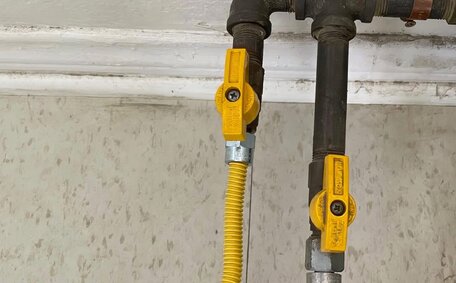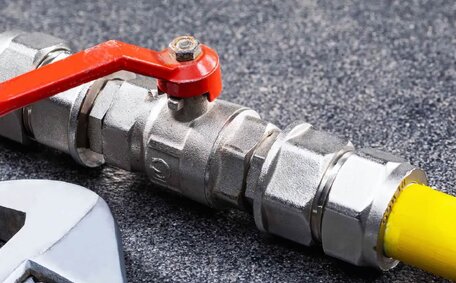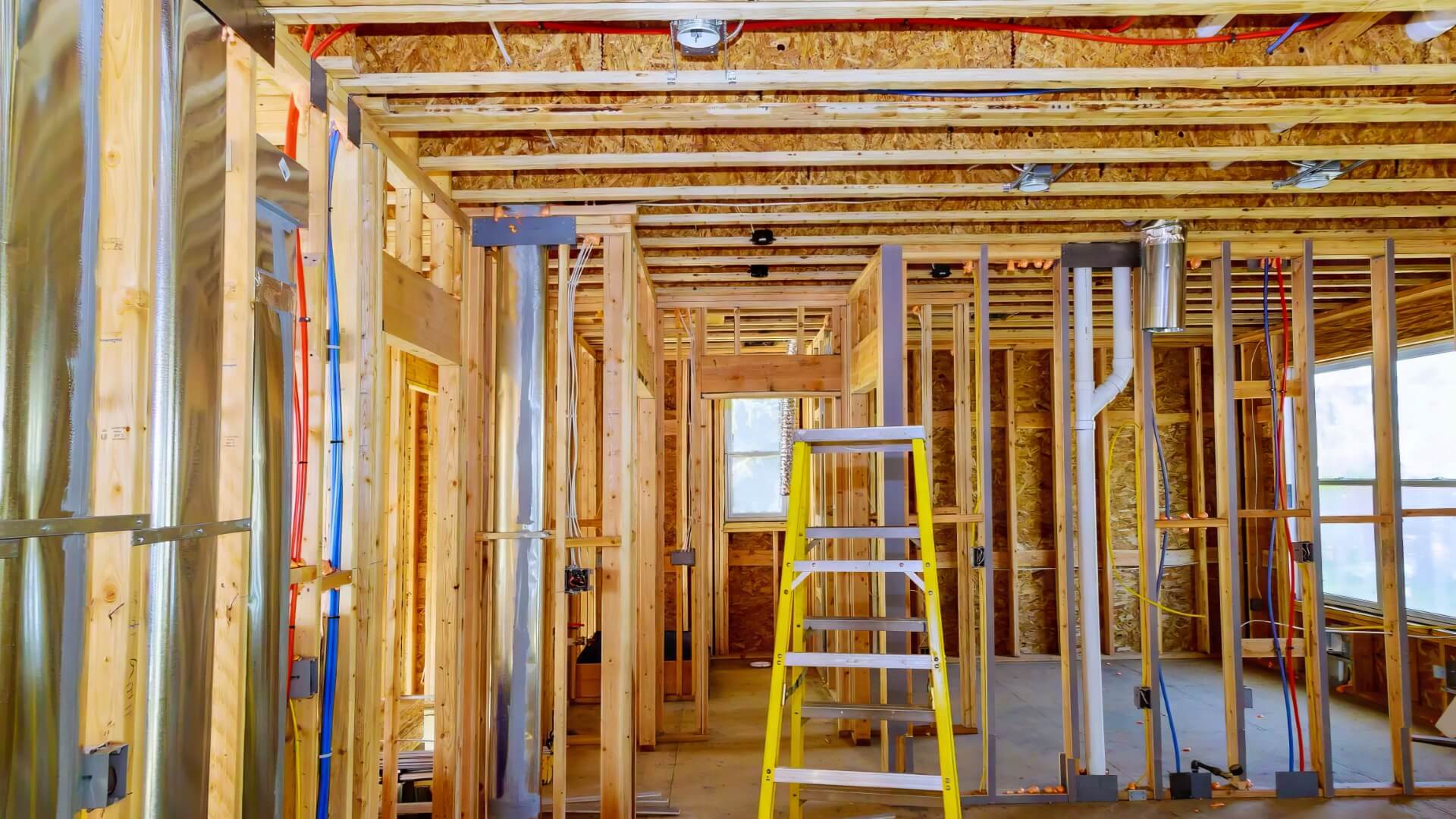
Natural Gas vs. Propane: What’s the Difference?
Propane and natural gas are popular fuel sources, but have different origins and properties. Propane delivers more BTUs per cubic foot. Natural gas is piped underground to homes.
Read MoreNatural gas, mostly comprising methane, serves as a crucial fuel source for your home. It is commonly used in homes and businesses for purposes like:
In homes, natural gas powers water heaters, indoor heating, and stoves with efficiency and comparatively lower emissions.
In its natural state, natural gas is colourless and odourless. Gas companies add a special scent to aid detection, and it’s essential to know the correct response if you detect this odour. Being lighter than air, natural gas rises and dissipates quickly when leaked.
In the Woollahra region, your service arrives via a secure gas pipeline, demonstrating the typical path gas takes into residences and commercial spaces. Your home’s main gas supply powers essential appliances, such as hot water systems, stoves, and heaters. It’s vital to understand how to conduct safe self-inspections and use gas responsibly.
There are a few key signs to watch out for to learn how detect a natural gas leak:
Natural gas is odourless, so providers add a sulphuric, rotten egg-like scent called mercaptan for leak detection. If you notice a distinctive sulphur-like odour, it’s likely an indication of a gas leak, and you must know the correct steps to take.
Listen for an unusual hissing noise that may signify a gas leak in your premises. This sound often signals gas is escaping.
Visible signs such as disturbed soil around the gas line, wilted plants near pipes, or unexplained condensation may indicate leaks. You may be able to see the gas leak affecting your surroundings.
While typically safe, symptoms of natural gas exposure can include headaches, dizziness, nausea, and respiratory troubles. In severe cases, the health risks increase, potentially leading to unconsciousness or even death through asphyxiation or natural gas poisoning.
Natural gas can ignite from a spark or the warmth of a pilot light at concentrations as low as 5%. A small spark may feel inconsequential, but a leak can turn this into a dangerous ignition point. Gas leaks present significant fire risks and require immediate attention.
Upon suspecting a gas leak, verify the gas meter status and, if it’s safe, turn off your gas supply, evacuate immediately, warn others, and contact emergency services. Turn off your gas valves, also known as the 'off gas’ procedure, if it’s safe to do so while exiting to prevent any potential gas leak in your home. Even small leaks from any gas source can evolve into hazardous air scenarios, so always err on the side of caution when a leak is possible.
Understand how to detect odourless natural gas in its natural state. Gas companies add odorants like mercaptan for safety reasons. Mercaptan gives natural gas a strong rotten egg smell that allows people to detect leaks.
Without added odorants like mercaptan, natural gas leaks would be impossible to smell. Odorants provide an essential early warning system for gas leaks. They allow issues to be identified and addressed before they evolve into fires, explosions or health hazards.
Infusing odorants into natural gas is a safety precaution, ensuring the fuel is natural gas safe across the industry. Gas providers adhere to stringent regulations that mandate the inclusion of odorants in pipeline systems. Customers rely on gas providers to ensure safety through consistent odorisation of fuels.
If a lingering odour reminiscent of rotten eggs persists, which suggests a gas leak, locate your shutoff valve promptly. Exit any enclosed spaces, alert others in the vicinity, shut off valves if possible, and call emergency services to report a gas leak in your premises. Never ignore the presence of odorants in natural gas – taking action to ensure your safety may depend on heeding their warning and responding promptly.
Exposure to natural gas leaks or accidents can have serious health consequences. The main risks include:
Incomplete combustion of natural gas releases odourless, colourless gases such as carbon monoxide (CO) and can lead to nitrogen dioxide exposure. At elevated levels, carbon monoxide can be fatal, making it vital to monitor levels carbon monoxide profoundly. Low to moderate carbon monoxide exposure can cause flu-like symptoms such as:
Install CO detectors for secure operation of gas appliances and seek advice from local experts for correct placement, especially near sleeping areas. Should the alarm resound, go outside without delay and then contact local emergency services.
Inhaling a high concentration of natural gas can lead to oxygen deficiency (asphyxiation). It displaces oxygen in the lungs, causing rapid breathing, weakness, loss of coordination and even unconsciousness.
Exposure to natural gas may cause irritation to the eyes, skin, throat, and lungs. At very high levels, it may cause brain damage or even death. Those with heart or lung conditions, as recognised by the Chan School Public Health, are at a heightened risk.
If you experience any concerning symptoms after natural gas exposure, seek medical care right away. Preventative measures like CO detectors, ventilation, leak checks and turning appliances off when not in use are crucial for maintaining health safety in your dwelling.
If you suspect a gas leak, prioritise safety and quick response:
If safe to do so, turn off the main gas valve to prevent further leakage and avoid inadvertent gas release as you begin troubleshooting.
Call 'Dial Before You Dig’, then open doors and windows to ventilate the area, helping to dissipate any natural gas present. Being lighter than air, natural gas ascends and scatters swiftly in open, breezy spaces.
After ensuring the area’s safety, contact a professional gas fitter for assessment and repairs. Do not re-enter until safe to do so. Licensed gasfitters should inspect for leaks.
Stay calm but act swiftly if you suspect a gas leak. Even small leaks can indicate leaking gas which can rapidly escalate into fires, explosions, or health emergencies. Follow crucial natural gas safety tips, adhere to safety guidance and alert emergency services for assistance.
Proper maintenance of natural gas appliances is essential for safety and efficiency. Make sure to find out more about the way gas appliances are inspected annually and serviced regularly by qualified professionals to help avert problems.
Faulty, old, or malfunctioning appliances pose risks of gas leaks, incomplete combustion, and carbon monoxide generation. Replacing ageing appliances reduces these dangers. Newer models are energy safe and promote energy efficiency for your home business.
Gas facilitates seamless cooking and heating experiences, and the use of exhaust fans enhances gas dispersion. Activate them while using gas for heating or cooking to expel unburned gas outdoors. This improves indoor air quality when you use natural gas.
At Woollahra Plumbing, we offer services for your home business like leak detection, appliance inspection, maintenance, repair and installation. Our certified technicians can audit your system, mitigating risks and ensuring your gas appliances run safely.
Routine maintenance on your gas appliances prevents problems. If you notice issues, unhealthy air, or just want your appliances assessed, contact our team. Prioritising maintenance is key to ensure your home or business remains safe and healthy.
Although natural gas has lower carbon dioxide emissions, leaks or unintended releases can significantly contribute to air pollution and climate change.
Predominantly methane, natural gas is about 25 times more effective than carbon dioxide at trapping heat in the atmosphere when leaked. Therefore, curbing methane leaks is essential for lessening its climate impact.
Responsible production, distribution and usage of natural gas can reduce environmental impacts and can be part of a clean energy strategy compared to other fossil fuels. However, a shift to renewable energy sources, such as solar and wind, is crucial to address climate change effectively.
At Woollahra Plumbing, we advocate conserving natural resources and using energy efficiently. Through prudent use of energy sources such as natural gas, adopting simple measures can lower consumption, costs, and emissions. Explore our video resources for solutions specifically tailored to your needs.
Engaging with a licensed gasfitter and certified gas professionals is strongly recommended for any natural gas appliances, installations or repair needs. At Woollahra Plumbing, please select your preferred licenced and insured gas fitters familiar with local codes.
The benefits of natural gas are best realised when utilising licensed technicians, like our adept team at Woollahra Plumbing:
Safeguard those on your premises from hazards such as LP gas, often referenced as gas LPG, and enjoy tranquillity by employing credible licensed gasfitters for your natural gas requirements.
Minimise risks with your gas systems by trusting licensed professionals like the team at Woollahra Plumbing. Contact us online or call 1300 349 338 to discuss your natural gas safety requirements.
Propane and natural gas are popular fuel sources, but have different origins and properties. Propane delivers more BTUs per cubic foot. Natural gas is piped underground to homes.
Read MoreUpgrading a gas meter improves safety and may be necessary over time. Our experienced team can guide you through the process, costs and timeframes involved to upgrade your gas meter.
Read MoreIf pipe relining fails due to severe damage, replacement may be required. We provide affordable pipe repairs in Sydney without excavation. Call today for pipe assessments. Our expert team will determine if pipe relining or full replacement is needed.
Read MoreWoollahra, 2025 NSW
We will call back as soon as possible.




